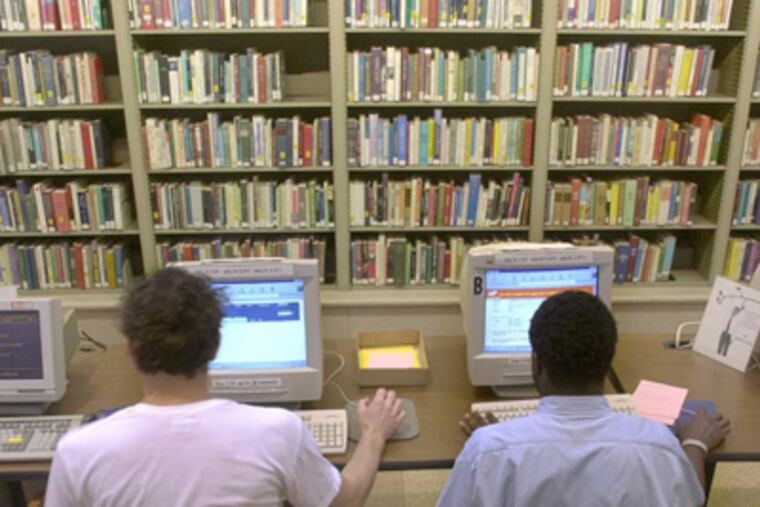Libraries need e-books, too

Publishers and libraries are at odds over how to satisfy the public's craving for electronic books. How they resolve this thorny issue will have a tremendous impact on readers.
Fearing potentially crippling losses, publishers are withholding e-books from libraries, charging them more than other customers, or limiting how many times a library can lend an e-book. That bumps into librarians' unwavering commitment to promote literacy, preserve culture, and make books available to people regardless of their financial situation.
E-books have become so popular that the Free Library of Philadelphia reports a surge from July 2011, when there were 17,000 downloads, to last month, when there were 26,800 downloads.
Theoretically, e-books can last forever, and they are so easily obtained on the Internet that publishers believe they could lose their chance to recoup the costs of the original risks they took on authors and production. Paper books sold to libraries eventually deteriorate after many uses and libraries must replace them. With e-books, they don't.
The ease of downloading also means people don't have to go to libraries for e-books, which raises questions about the future of libraries. They are more than just book warehouses. For example, the jobless go the library to hunt for employment on the Internet. Libraries help bridge the digital divide between those who have computers and those who don't. Their programs for young children, teenagers, and adults promote literacy. And visits by popular authors to a public library are significant cultural events.
Librarians rightly argue that they are spending dwindling public resources on e-books, so they should get a break. Part of their job is to help build a literate society, which is essential to a strong democracy. They also make a strong case that libraries generate business for publishers.
"We know book borrowers are also book buyers, and we find that e-book borrowers are also e-book buyers, and that pattern won't change," says Sari Feldman, cochair of the American Library Association's e-book committee.
But publishers have a point, too, in wanting to protect their businesses and authors from losses. Unlike newspapers, which went to the Internet without a sustainable business model, book publishers are trying to figure out a way to protect themselves before leaping into cyberspace.
A compromise that could work is being pioneered by Harper-Collins, which put a 26-loan cap on its e-books last year. Once an e-book is borrowed 26 times, a library must buy a new license. But Harper's limited-use model doesn't assist librarians in their roles as preservers of the culture. Imagine how scandalous it would be if the Free Library's impressive collection of first-edition Charles Dickens novels were e-books with expired licenses?
Fortunately, both sides are continuing to discuss their linked fates. They met last week at the Public Library Association conference in Philadelphia.
The solution has to balance the health of the publishing industry with the public's thirst for knowledge - and a library's ability to cultivate that thirst.